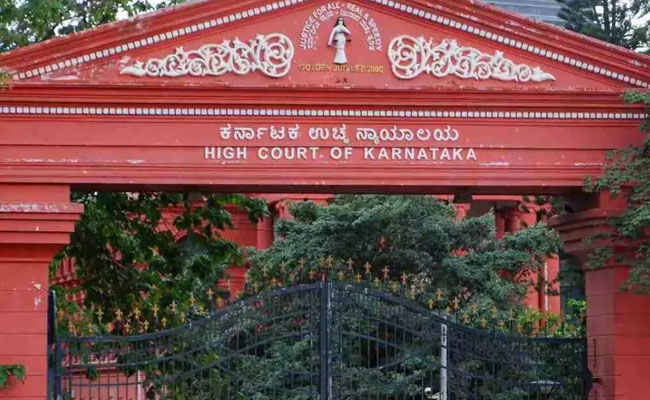
The Karnataka High Court has raised serious concerns over the government’s lack of investment in essential infrastructure in government schools, ultimately compelling underprivileged families to turn to private schools. This scathing observation came during a hearing of a public interest litigation initiated by the court in 2013, prompted by media reports of children excluded from the schooling system.
The High Court bench, consisting of Chief Justice Prasanna B Varale and Justice Krishna S Dixit, questioned, “Is education reserved for the privileged?” The court underscored the government’s inaction despite being made aware of deficiencies in government schools, particularly regarding the lack of restrooms and drinking water facilities, as far back as 2013.
The shocking revelation made during the hearing is that 464 government schools still lack restrooms, and 32 do not have access to drinking water facilities. Expressing dissatisfaction with the government’s lack of response, the court has now demanded that an affidavit detailing plans to provide basic facilities in all schools be filed within eight weeks.
The court pointedly asked, “Is it for us to tell all this to the state? This has been going on for so many years. There must have been some amount shown in the budget for the schooling and education department. What happens to that amount?”
While acknowledging the government’s schemes to provide free education for the economically disadvantaged, the court stressed that the provision of necessary facilities and infrastructure in schools where financially challenged students study should be of paramount importance.
The court emphasized that education is a fundamental right and criticized governments for their failure to equip government schools adequately, thereby pushing economically disadvantaged families towards private education.
The court’s order expressed its concerns: “Because of the lack of basic facilities, the government schools are closed. On the other hand, as there is no other option, parents even when they are financially not well or sound are left with no choice but to admit their wards to the alternate private schools. The learned counsel is also justified in submitting that such a situation frustrates the object of making primary education a fundamental right as ensured in the Constitution of India.”
The High Court highlighted that images of Babasaheb Ambedkar, a champion of education, often depict him with a book to emphasize the importance of learning. The court also noted that many developed countries allocate more funds to education than to defense.
While providing time for the comprehensive report requested from the government, the court recorded that “The government advocate submits that as the copy of the report prepared by the learned amicus is handed over to her, she will personally look into it and call up the concerned government officials.” The court’s action underscores the urgent need for improving educational infrastructure and accessibility for all in Karnataka.
Sources By Agencies




